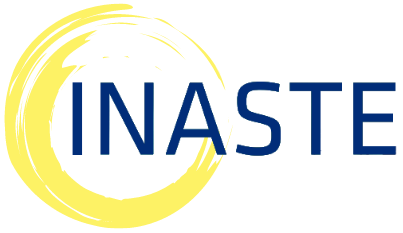Freie Hochschule Stuttgart
(Waldorf Teachers College)
Stuttgart Seminar for Waldorf Pedagogy
Stuttgart, Germany
Haußmanstraße 44a
D-70188, Stuttgart
Contact information:
info@freie-hochschule-stuttgart.de
+49-711-2348913
Teaching language: German in the Bachelor’s Program, either German or English in the post-graduate courses
Number of students: 460
Permanent faculty: 25
Guest faculty: 70
Study programs: Full-time and part-time programs / Bachelors Program (3 years) and Master’s Program (1 ½ – 2 year)
Degrees offered:
Bachelor of Arts in Waldorf Education
Master of Arts in Waldorf Education
Bachelor of Arts in Eurythmy with a Foundation in Pedagogy
Master of Eurythmy Pedagogy
Teaching Certificate for Teachers at Waldorf Schools
The Freie Hochschule Stuttgart (Waldorf Teachers College) educates teachers for Waldorf schools in Germany and worldwide. Accredited academic degree programs are offered for all pedagogical fields connected to Steiner schools. This includes class and subject teachers as well as high school teachers. In cooperation with the Eurythmeum Stuttgart, the Freie Hochschule also offers accredited courses in eurythmy and eurythmy pedagogy. Located on the same premises as the first Waldorf School at Uhlandshöhe, and as part of a larger campus with a number of other anthroposophical institutions, the Freie Hochschule has been educating teachers since 1928. The modularization and accreditation of the program was a continuation of the effort to bring Waldorf pedagogy into current academic discourse and develop Waldorf education within the larger context of the educational, social and human sciences. The teaching and research activities of the faculty are focused on the further development of a pedagogy in which teaching is viewed as an art. Therein lies a responsibility to extend and enhance the prevalent scientific orientation in traditional teacher education by adopting a more creative, artistic and humanistic approach, whose aim is to understand and address spiritual, cognitive and emotional processes in a more encompassing manner. In this context, a heuristic approach to the study of anthroposophy plays a central role. A strong emphasis is also placed on creating possibilities for personal development through the intensive practice of a broad range of artistic subjects, including speech formation, eurythmy, music, painting, and sculpture. Regular internships in Waldorf schools are also a crucial element in all programs. An on-going interdisciplinary discourse between anthroposophical, anthropological and artistic approaches is viewed as a basis for understanding and addressing the pedagogical challenges of our times and thus contributing to the ongoing development of Waldorf education.









